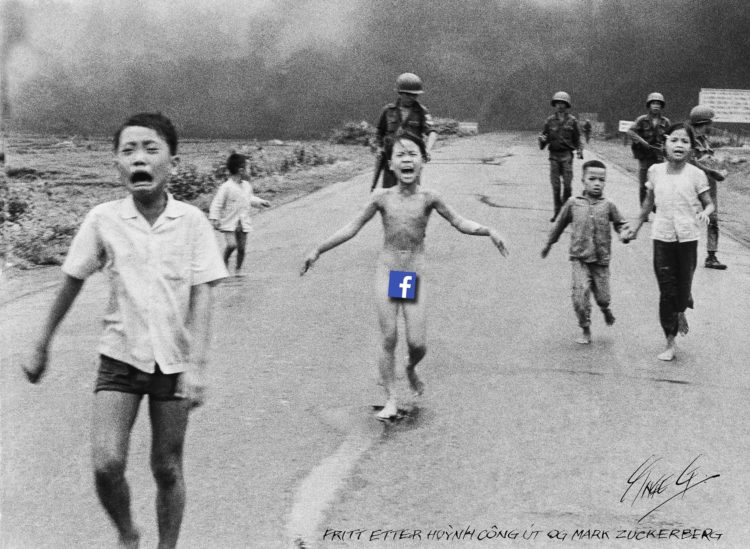-
Tips for becoming a good boxer - November 6, 2020
-
7 expert tips for making your hens night a memorable one - November 6, 2020
-
5 reasons to host your Christmas party on a cruise boat - November 6, 2020
-
What to do when you’re charged with a crime - November 6, 2020
-
Should you get one or multiple dogs? Here’s all you need to know - November 3, 2020
-
A Guide: How to Build Your Very Own Magic Mirror - February 14, 2019
-
Our Top Inspirational Baseball Stars - November 24, 2018
-
Five Tech Tools That Will Help You Turn Your Blog into a Business - November 24, 2018
-
How to Indulge on Vacation without Expanding Your Waist - November 9, 2018
-
5 Strategies for Businesses to Appeal to Today’s Increasingly Mobile-Crazed Customers - November 9, 2018
Facebook reverses censored Vietnam War photo
A ruckus has erupted in Norway over Facebook’s repeated removal of an iconic 1972 war photograph of a naked young girl fleeing a napalm attack in Vietnam.
Advertisement
Sloberg, while commending Facebook’s effort to stop violent or abusive content, voiced support in a post for Norway’s largest newspaper, Aftenposten after its editor-in-chief criticised Facebook for removing the Pulitzer-prize winning photograph from one of its posts.
“I am anxious that the world’s most important medium is limiting freedom instead of trying to extend it and that this occasionally happens in an authoritarian way”, he wrote.
The editor of Norwegian paper Aftenposten said the whole post, which was about iconic war images, was later deleted and the accounts of the reporter behind it suspended.
Facebook, in a statement from its European headquarters in London, originally said: “It’s hard to create a distinction between allowing a photograph of a nude child in one instance and not others”. But late Friday it said it would allow sharing of the photo.
There was little recourse for Aftenposten, Hansen wrote, and little accountability from Facebook.
Facebook said in a statement its rules were more blunt than the company itself would prefer, adding that restrictions on nudity were necessary on a global platform.
“Because of its status as an iconic image of historical importance, the value of permitting sharing outweighs the value of protecting the community by removal, so we have made a decision to reinstate the image on Facebook where we are aware it has been removed”, a spokesperson for the world’s largest social network said in an email to AFP.
“I understand what they are saying but I think they are over the top”, she said. Facebook quickly deleted it.
Numerous posts were deleted but Isaksen’s was still up Friday afternoon. The 1972 picture by Nick Ut features nine-year old Kim Phuc running away, naked, from napalm bombs. He also advised to “distinguish between editors and other Facebook-users”, if Zuckerberg really wants to “make the world more open and connected”, and not just superficially so.
Mark Zuckerberg has been accused of “abusing his power” after his United States social network deleted an iconic image of a young girl running down the street after sustaining severe burns in a napalm attack during the Vietnam war.
Facebook’s statement said it will adjust its review mechanisms to permit sharing of the image going forward. “Our solutions won’t always be flawless, but we will continue to try to improve our policies and the ways in which we apply them”. The director of media relations, on behalf of the organization, expressed pride in the photo and recognition of its historical impact. and noted that “we reserve our rights to this powerful image”.
“I am upset, disappointed – well, in fact even afraid – of what you are about to do to a mainstay of our democratic society”, Hansen wrote.
Advertisement
Facebook’s policy on nudity acknowledges that its system can be “more blunt” than intended, although it doesn’t go into detail about how, precisely, that system operates. “In addition, we reserve our rights to this powerful image”. How can we not publish this picture?




























